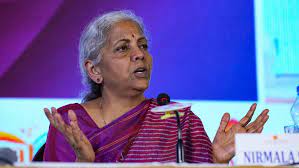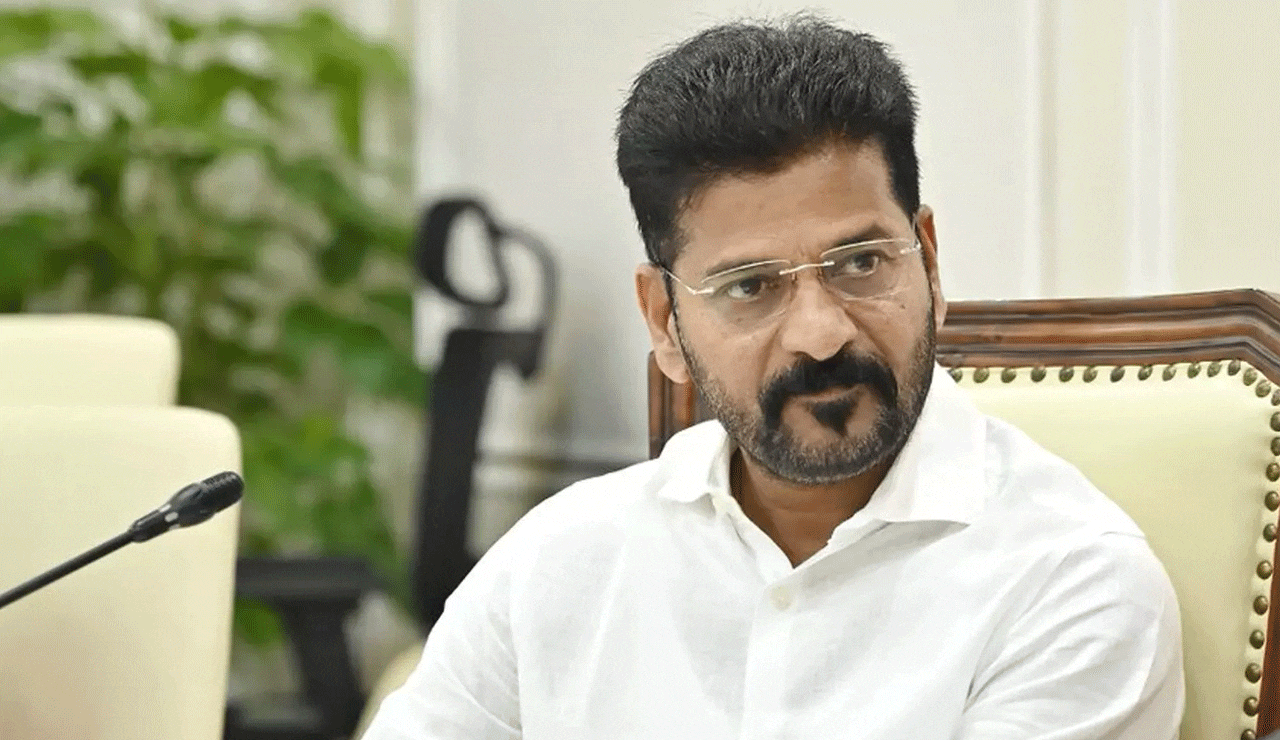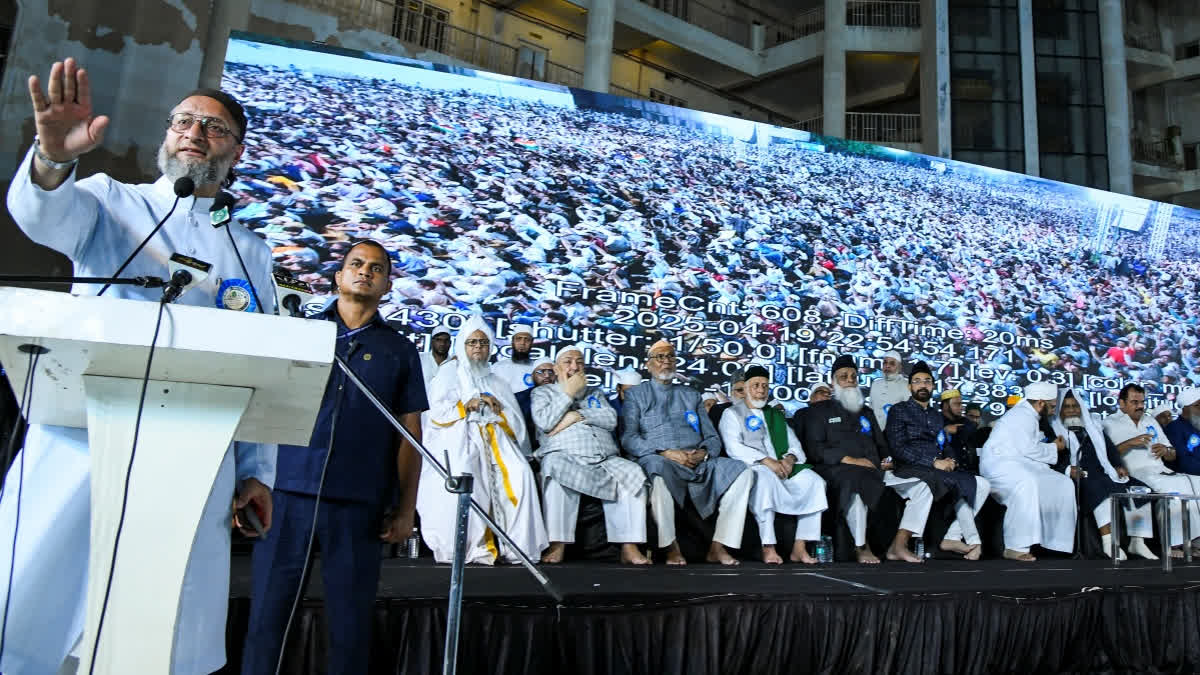Saudi king's Japanese visit is about much more than oil
Sat 11 Mar 2017, 08:17:27

Saudi King Salman bin Abdulaziz's visit to Japan may be the most important stop in his month-long tour of Asia. The trip has multiple aims that go well beyond securing market share in a region that is increasingly important to the nation's oil industry. In addition to reinforcing ties with Sunni Islamic majority Asian states, with an eye on the volatile power balance in the Middle East, the king is seeking investment and support for an ambitious reform program at home. Relations with Japan are pivotal to achieving these goals.
For Japan, Riyadh's second largest economic partner, the visit is equally important. It is an opportunity to enhance energy security, to secure infrastructure investment opportunities and to flesh out memorandums of understanding signed last year. Prime Minister Shinzo Abe -- who has visited the Middle East three times since 2012, including a Saudi state visit in 2013 -- has also been pursuing a greater security role in the region, where a lack of colonial baggage allows Tokyo to claim the role of "honest broker." Such cooperation is an important element of an increasingly uncertain U.S.-Japan strategic partnership.
There is an Asia-Middle East energy nexus built on interdependence that extends well beyond the Saudis and Japan. Two-thirds of Saudi oil exports go to East Asia. For Japan, 83% of oil imports come from the Gulf, mainly Saudi Arabia, but also the United Arab Emirates, Qatar, Kuwait and Iran. In addition, Japan -- which accounts for about one third of the world's liquefied natural gas purchases -- imports 21% of its supplies from the Gulf and the rest from Asian partners. China secures nearly two-thirds of its oil imports from the Middle East; South Korea, 85% of its oil imports.
While this energy nexus clearly comprises commercial relationships, it also has strategic consequences.
It is no surprise that Saudi Aramco, the state oil conglomerate, signed $13 billion in refinery deals during King Salman's stopovers in Indonesia and Malaysia. These will double Saudi refining capacity and are aimed at locking in the country's share of exports to East Asia. Aramco has also been negotiating renewal of oil storage tank leases in Okinawa in southern Japan. In addition, there is Saudi-Japanese cross-investment in petrochemical plants and refineries in Saudi Arabia and in Japan.
For Japan, stability in the Middle East is critical to its energy security. Much of the turmoil is driven by conflict between Sunni and Shia factions of Islam, centered on strategic competition between Sunni Saudi Arabia and Shia Iran for pre-eminence in the region. So one problem in Tokyo's quest for energy security is balancing its growing links with Tehran with established strategic alliances with Riyadh and Washington -- particularly with relationships shifting rapidly as the administration of President Donald Trump beds in.
Since the lifting of sanctions following the international deal on Iran's nuclear program, Japan has sought to revive business ties with the
country. In 2016 it signed a bilateral treaty that reduced investment risk and it has extended $12 billion in investment credits to advance its interests. One of its primary goals is to renew expired investments in Iran's oil and gas fields, particularly, the Azadegan oil fields, estimated to contain up to 30 billion barrels of oil reserves.
Japan's growing economic involvement with Iran has not yet raised the ire of the U.S., Riyadh or its Gulf Cooperation Council partners. Stronger ties with Riyadh ties are likely to offset any concerns that do arise.
Vital to both Saudi Arabia's future and to Japan-Saudi relations is Saudi Vision 2030. The plan for modernizing society, improving governance, privatizing and transforming the economy, and building a stronger business culture is the most ambitious in the Arab world. If successful, it will turn the desert kingdom into a knowledge economy positioned for a post-petroleum world.
The $100 billion partnership between Japan's SoftBank Group and Riyadh's Public Investment Fund may help facilitate this. This will create the world's largest tech fund. Riyadh is also aiming to transfer ownership of Aramco -- in which it is planning to to sell a 5% stake in an initial public offering -- as it expands the size of its sovereign wealth fund. Aramco's public value is estimated to be as much as $3 trillion. The company will not have to repay investors for 12 years, enabling it to take a long-range approach to investment.
While the $100 billion fund's investments are global, the acquisition of technology will almost certainly filter into Saudi development efforts. But it will be some time before the impact of Vision 2030 can be judged.
However fast its bonds with Saudi Arabia, Japan will have an economic and strategic rival for its place in the Middle East. Beijing signed a dozen cooperation memorandums of understanding with the Saudis last year. Chinese banks and state-owned oil companies will undoubtedly also be lining up to pursue deals. As the country's economic and maritime capacity has grown, it is playing a larger role in the greater Middle East as part of its "One Belt, One Road" Eurasian development scheme.
From the Saudi and GCC perspective, growing Japanese and Chinese engagement in the region is part of a hedging strategy. While Riyadh is relieved at Trump's support for its war in Yemen and tougher stance toward Iran, it is also concerned about what the president's vow to put "America First" means for the long-term U.S. role in the Middle East, where Washington's dominance is already being challenged by Moscow's new activism. While China is a long way from playing the role of security guarantor, I have heard more than one Arab intellectual suggest this might be in order, given that the U.S. imports relatively little of its oil from the region.
On many levels, therefore, King Salman's visit offers Tokyo a rare chance to strengthen ties with Riyadh and its position in the Middle East. Japan can ill afford to waste this opportunity.
For Japan, Riyadh's second largest economic partner, the visit is equally important. It is an opportunity to enhance energy security, to secure infrastructure investment opportunities and to flesh out memorandums of understanding signed last year. Prime Minister Shinzo Abe -- who has visited the Middle East three times since 2012, including a Saudi state visit in 2013 -- has also been pursuing a greater security role in the region, where a lack of colonial baggage allows Tokyo to claim the role of "honest broker." Such cooperation is an important element of an increasingly uncertain U.S.-Japan strategic partnership.
There is an Asia-Middle East energy nexus built on interdependence that extends well beyond the Saudis and Japan. Two-thirds of Saudi oil exports go to East Asia. For Japan, 83% of oil imports come from the Gulf, mainly Saudi Arabia, but also the United Arab Emirates, Qatar, Kuwait and Iran. In addition, Japan -- which accounts for about one third of the world's liquefied natural gas purchases -- imports 21% of its supplies from the Gulf and the rest from Asian partners. China secures nearly two-thirds of its oil imports from the Middle East; South Korea, 85% of its oil imports.
While this energy nexus clearly comprises commercial relationships, it also has strategic consequences.
It is no surprise that Saudi Aramco, the state oil conglomerate, signed $13 billion in refinery deals during King Salman's stopovers in Indonesia and Malaysia. These will double Saudi refining capacity and are aimed at locking in the country's share of exports to East Asia. Aramco has also been negotiating renewal of oil storage tank leases in Okinawa in southern Japan. In addition, there is Saudi-Japanese cross-investment in petrochemical plants and refineries in Saudi Arabia and in Japan.
For Japan, stability in the Middle East is critical to its energy security. Much of the turmoil is driven by conflict between Sunni and Shia factions of Islam, centered on strategic competition between Sunni Saudi Arabia and Shia Iran for pre-eminence in the region. So one problem in Tokyo's quest for energy security is balancing its growing links with Tehran with established strategic alliances with Riyadh and Washington -- particularly with relationships shifting rapidly as the administration of President Donald Trump beds in.
Since the lifting of sanctions following the international deal on Iran's nuclear program, Japan has sought to revive business ties with the
country. In 2016 it signed a bilateral treaty that reduced investment risk and it has extended $12 billion in investment credits to advance its interests. One of its primary goals is to renew expired investments in Iran's oil and gas fields, particularly, the Azadegan oil fields, estimated to contain up to 30 billion barrels of oil reserves.
Japan's growing economic involvement with Iran has not yet raised the ire of the U.S., Riyadh or its Gulf Cooperation Council partners. Stronger ties with Riyadh ties are likely to offset any concerns that do arise.
Vital to both Saudi Arabia's future and to Japan-Saudi relations is Saudi Vision 2030. The plan for modernizing society, improving governance, privatizing and transforming the economy, and building a stronger business culture is the most ambitious in the Arab world. If successful, it will turn the desert kingdom into a knowledge economy positioned for a post-petroleum world.
The $100 billion partnership between Japan's SoftBank Group and Riyadh's Public Investment Fund may help facilitate this. This will create the world's largest tech fund. Riyadh is also aiming to transfer ownership of Aramco -- in which it is planning to to sell a 5% stake in an initial public offering -- as it expands the size of its sovereign wealth fund. Aramco's public value is estimated to be as much as $3 trillion. The company will not have to repay investors for 12 years, enabling it to take a long-range approach to investment.
While the $100 billion fund's investments are global, the acquisition of technology will almost certainly filter into Saudi development efforts. But it will be some time before the impact of Vision 2030 can be judged.
However fast its bonds with Saudi Arabia, Japan will have an economic and strategic rival for its place in the Middle East. Beijing signed a dozen cooperation memorandums of understanding with the Saudis last year. Chinese banks and state-owned oil companies will undoubtedly also be lining up to pursue deals. As the country's economic and maritime capacity has grown, it is playing a larger role in the greater Middle East as part of its "One Belt, One Road" Eurasian development scheme.
From the Saudi and GCC perspective, growing Japanese and Chinese engagement in the region is part of a hedging strategy. While Riyadh is relieved at Trump's support for its war in Yemen and tougher stance toward Iran, it is also concerned about what the president's vow to put "America First" means for the long-term U.S. role in the Middle East, where Washington's dominance is already being challenged by Moscow's new activism. While China is a long way from playing the role of security guarantor, I have heard more than one Arab intellectual suggest this might be in order, given that the U.S. imports relatively little of its oil from the region.
On many levels, therefore, King Salman's visit offers Tokyo a rare chance to strengthen ties with Riyadh and its position in the Middle East. Japan can ill afford to waste this opportunity.
No Comments For This Post, Be first to write a Comment.
Most viewed from International
Most viewed from World
AIMIM News
Latest Urdu News
Most Viewed
May 26, 2020
Do you think Canada-India relations will improve under New PM Mark Carney?
Latest Videos View All
Like Us
Home
About Us
Advertise With Us
All Polls
Epaper Archives
Privacy Policy
Contact Us
Download Etemaad App
© 2025 Etemaad Daily News, All Rights Reserved.

.jpg)
.jpg)
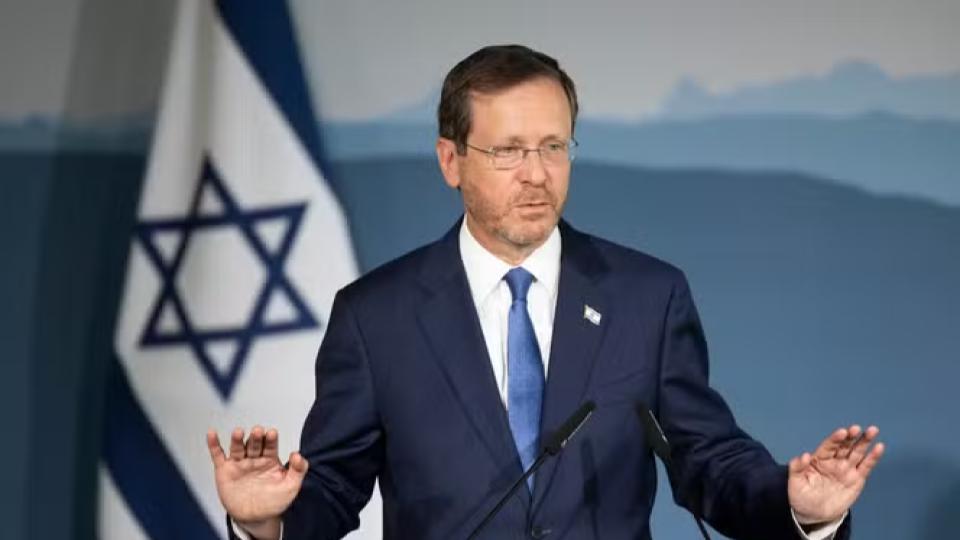
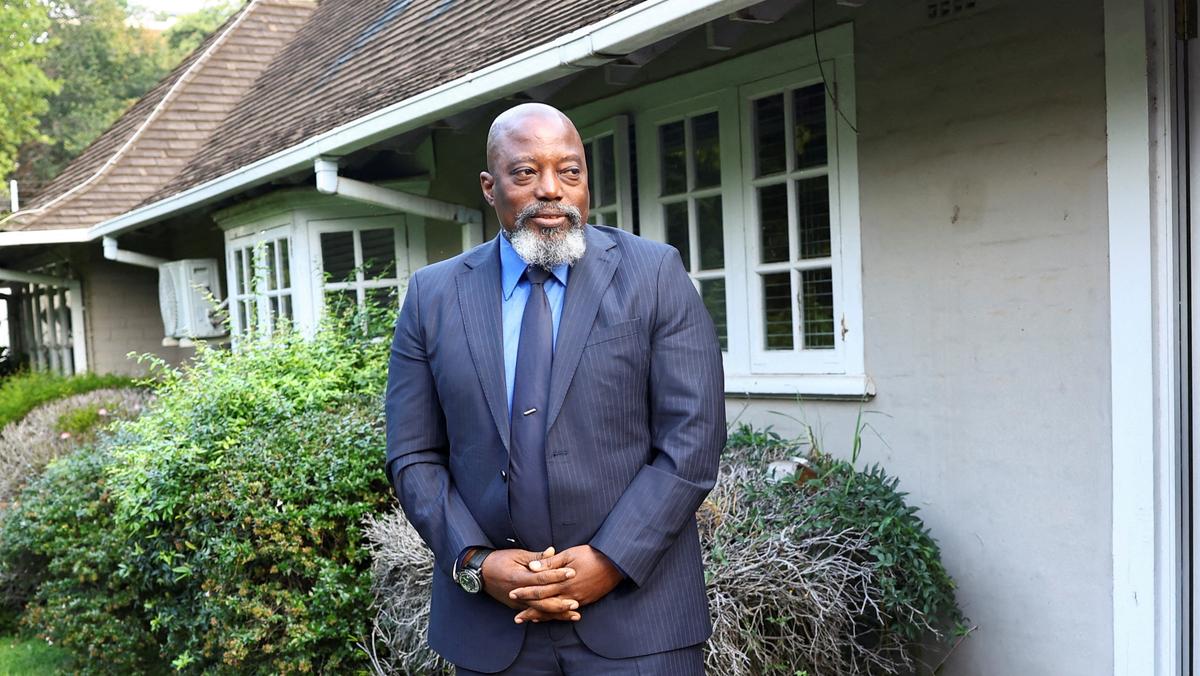
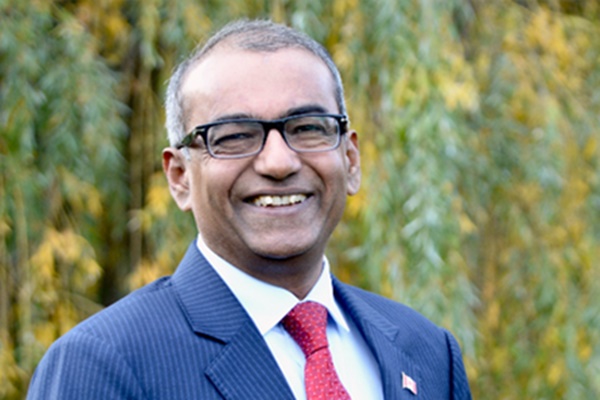
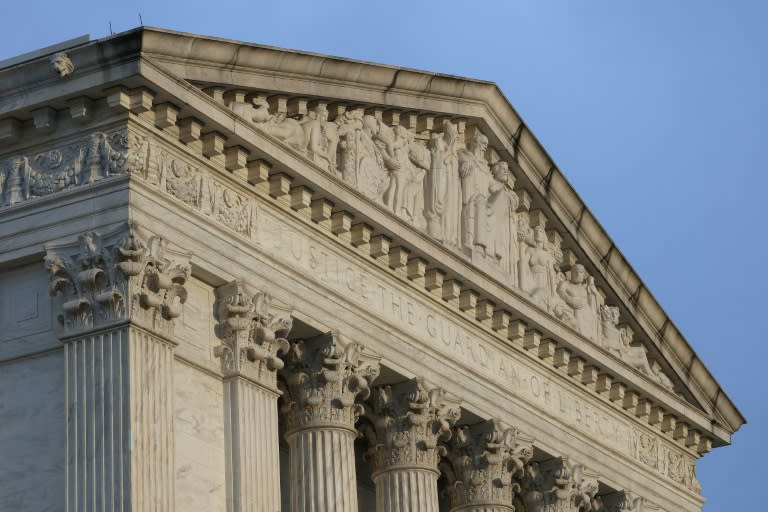

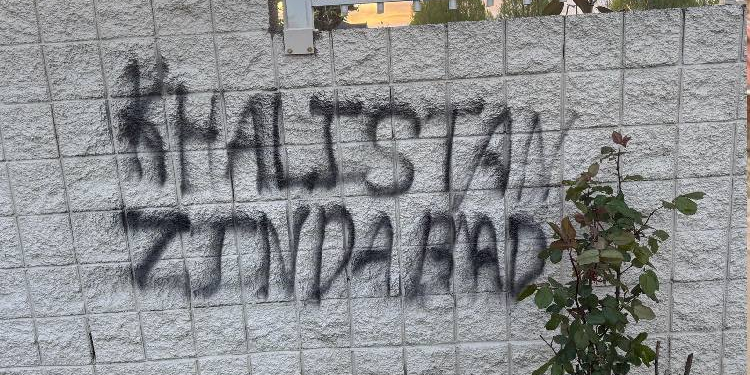

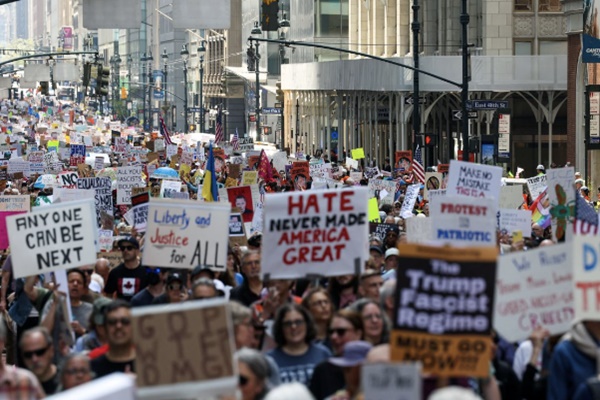


.jpg)
.jpg)
.jpg)
.jpg)
.jpg)
.jpg)
.jpg)
